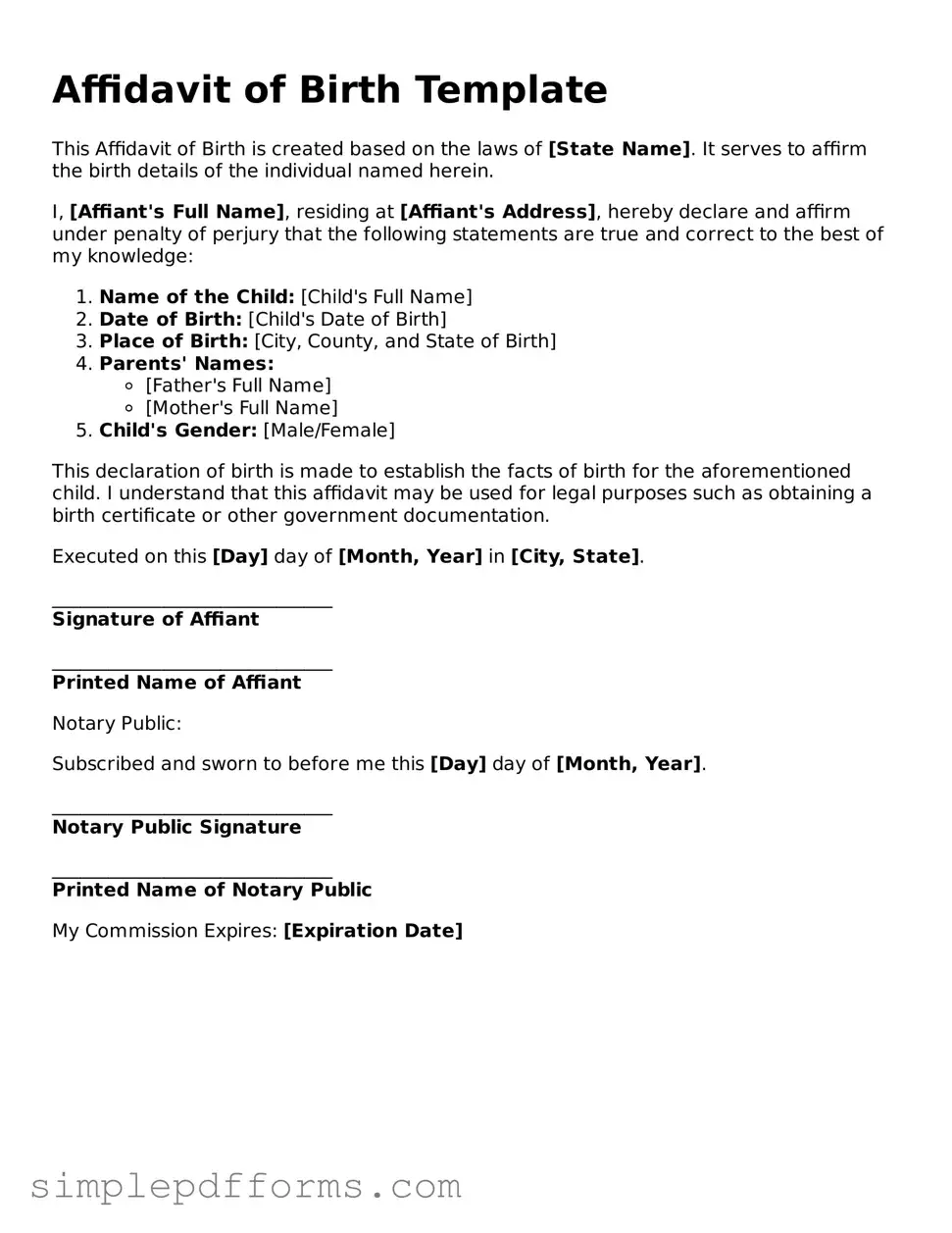Free Affidavit of Birth Form
The Affidavit of Birth is a legal document used to establish a person's birth details when official records are unavailable or incomplete. This form serves as a sworn statement, providing essential information about the individual's birth, such as date, place, and parentage. Understanding this form can be crucial for obtaining identification, enrolling in school, or accessing government services.
Open Affidavit of Birth Editor Now

Free Affidavit of Birth Form
Open Affidavit of Birth Editor Now

Open Affidavit of Birth Editor Now
or
Get Affidavit of Birth PDF Form
Your form is waiting for completion
Complete Affidavit of Birth online in minutes with ease.